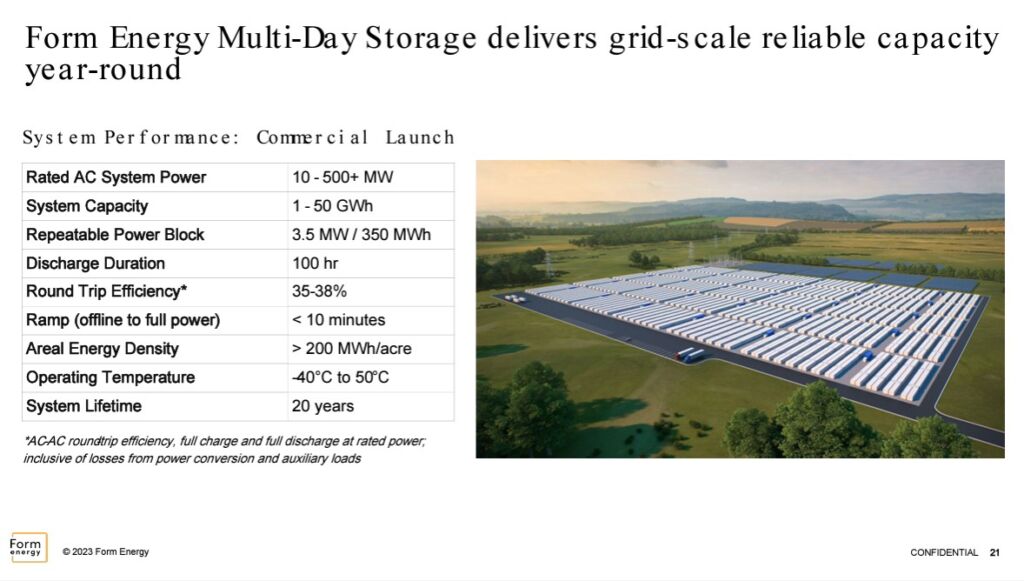The Minnesota Public Utilities Commission approves Xcel Energy’s horribly inefficient iron-air battery in Becker
The Minnesota Public Utilities Commission (PUC) has approved Xcel Energy’s request to construct a 10 megawatt (MW), 1,000 megawatt-hour (MWh) iron-air battery near the site of the Sherburne County Generating Station, a large coal plant in Becker, Minnesota. Unfortunately, the batteries for this demonstration project are horribly inefficient, and they will ultimately be expensive and of limited use.
Most of the batteries used to store electricity on the electric grid today are lithium-ion batteries, with this chemistry accounting for 98 percent of the market in 2021. The problem with this battery chemistry is that it generally only stores three to four hours of electricity.
In contrast, the iron-air battery Xcel is building can store up to 100 hours of electricity. However, multiple tradeoffs come along with a longer duration, including low charging and discharging rates and low round-trip efficiency.
In May, I attended a Midwest Reliability Organization (MRO) meeting where the company that sells this battery, Form Energy, presented on the merits of its product. In that presentation, we learned that Xcel’s battery would “hopefully” cost $20 million and deliver just 0.45 percent of the coal plant’s 2,238 MW output.
We also learned that these iron-air batteries are horribly inefficient, with a round trip efficiency of just 35 to 38 percent, meaning for every 2.63 MWhs of electricity sent to the battery, it will be able to discharge 1 MWh. Furthermore, while the company claims the facilities can last for 20 years, they also mentioned the battery cells would need to be replaced after just ten years.

In its press release, Xcel boasts that the iron-air battery demonstration project will be located near one of the largest solar developments in the U.S., Sherco Solar, which is now in development and will add up to 710 megawatts of solar to the grid.
What this means, in reality, is that Xcel plans on using solar power, which only produces about 20 percent of its potential output in Minnesota, to charge a battery that essentially wastes 2 MWh of electricity for every 1 MWh of electricity it can store.
Attempting to run our electric grid on unreliable and inefficient energy sources like solar and battery storage will drive up electricity prices and lead to rolling blackouts, and the special interest groups who advocate for these resources and utility commissioners who approve them will be responsible for the consequences.